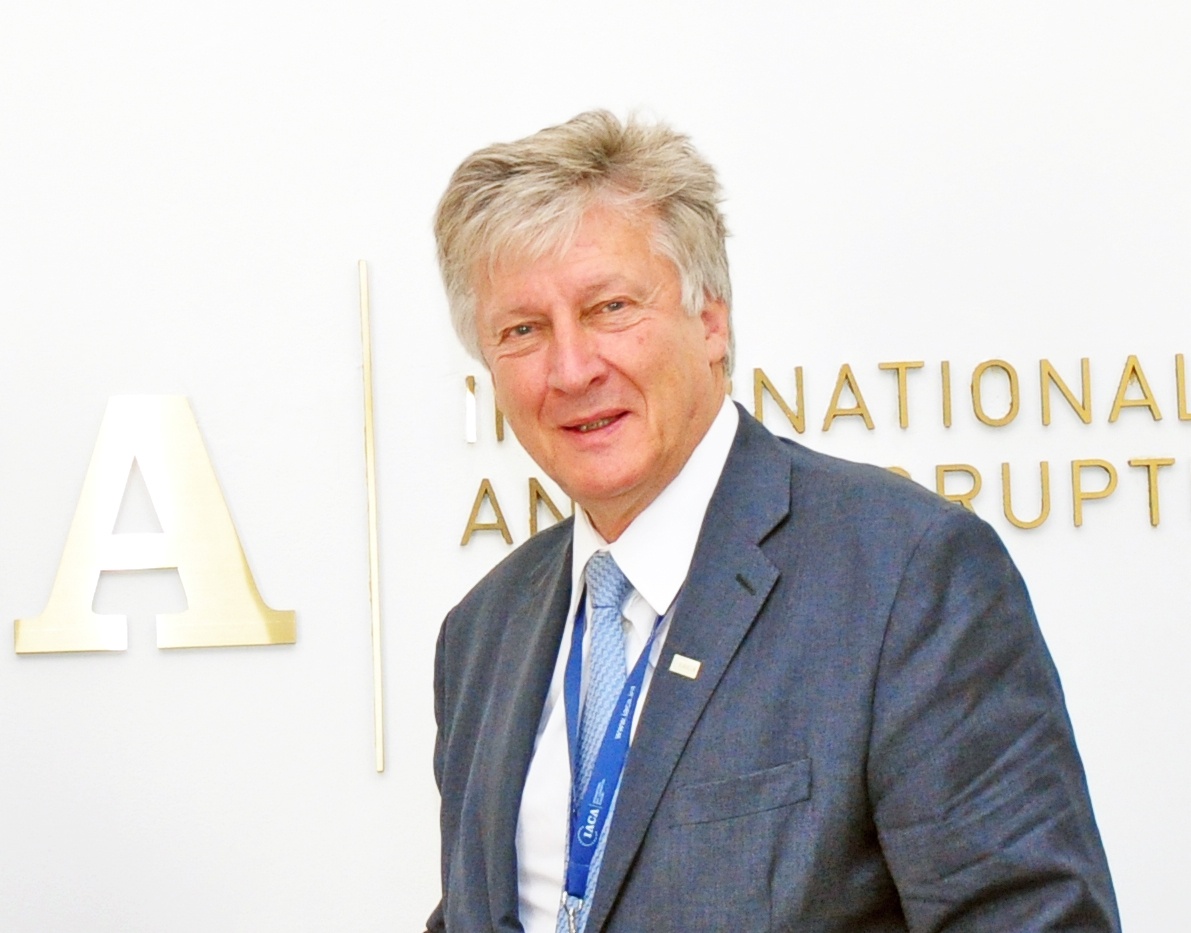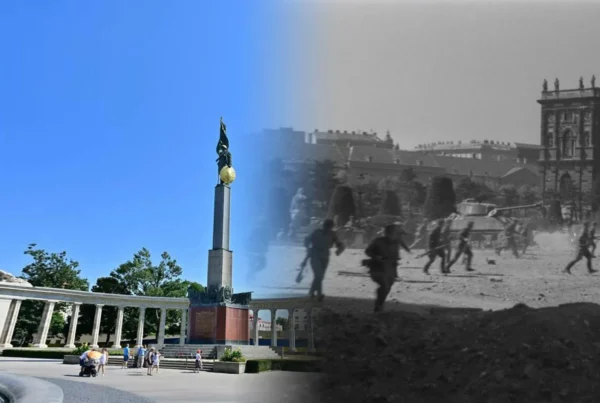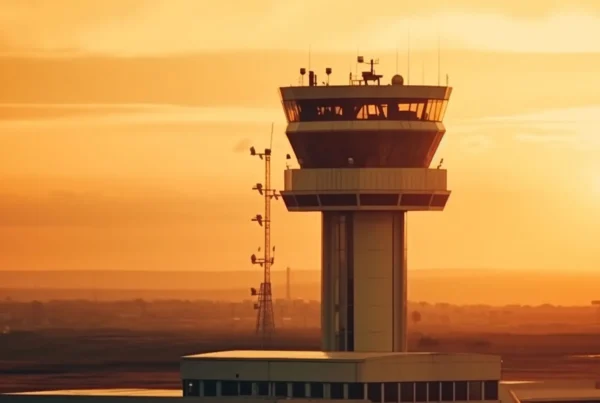Dr. Thomas Stelzer, Dean of the Vienna-based International Anti-Corruption Academy, gave iGlobenews an exclusive interview and discussed how IACA has adapted to COVID, how it will move forward and how joining PACI, the initiative of the World Economic Forum, will assist the global fight against corruption.
Diana Mautner Markhof, 16 May 2021
The Vienna-based International Anti-Corruption Academy (IACA) focuses its educational programs on anti-corruption and compliance issues. In an exclusive interview with iGlobenews on 4 May 2021, Dr. Thomas Stelzer, Dean of IACA and a former Austrian diplomat with extensive experience in UN organizations, discussed how IACA is positioning itself to expand its role as the premier institution of higher education in this specialized area.
Corruption has always existed. What has changed in the past few years, according to Dr. Stelzer, is the awareness of its existence – “it has moved out of the shadows.” New legal tools were created/implemented, and civil society and stakeholders joined the fight, which involves not only governments but also non-governmental organizations, academia and private enterprise.
An important milestone in the fight against corruption was the adoption of the 2030 Agenda for Sustainable Development by the United Nations General Assembly in September 2015, which included 17 Sustainable Development Goals (SDGs). These SDGs called upon all countries “to promote prosperity while protecting the planet.” SDG 16 concerns “peace, justice and strong institutions,” and it is supported by ten so-called “outcome targets”, one of which is the fight against corruption. Corruption siphons a large chunk of wealth, estimated at between $1.5 to $2 trillion worldwide, from productive economies. Without an effective fight against corruption, the 2030 Agenda will not be met.
A major step in the fight against corruption was the United Nations Convention against Corruption (UNCAC). UNCAC is a universal anti-corruption instrument that is a legally binding treaty. It has become a unique tool to fight corruption on a global scale, based on the rule of law. Although there still is no accepted global definition of corruption, the negotiation and the adoption of UNCAC in October 2003 moved corruption into our consciousness. States were encouraged to create institutions to aid in this fight. Dr. Stelzer – who, at the time, was Austria’s Permanent Representative to the UN Office in Vienna, the International Atomic Energy Agency, UNIDO and the CTBTO–signed UNCAC on behalf of the Republic of Austria.
Long before the UN’s Agenda 2030 had seen the light of day, IACA was created to provide technical assistance to its States Parties in their efforts to implement the provisions of UNCAC. Initiators of IACA include the United Nations Office on Drugs and Crime (UNODC), INTERPOL, the European Anti-Fraud Office (OLAF) and the Republic of Austria. As the Secretary of the UN Chief Executives Board (CEB), Dr. Stelzer played a key role in IACA’s conceptualization and establishment on 8 March 2011.
Dr. Stelzer sees IACA’s “structural birth defect” as its having been established outside of the UN system and not within. Despite this defect, IACA has two comparative advantages. It is the only such institution solely dedicated to fighting corruption that has the legal status of an international intergovernmental organization, and it is the only international organization that is also an institution of higher learning authorized to award academic degrees. Dr. Stelzer has used this comparative advantage to create a new Master’s Degree program, in cooperation with UNITAR (United Nations Institute for Training and Research), which focuses on diplomacy and anti-corruption. Dr. Stelzer sees the future of IACA within the UN family as an implementation agency of UNCAC.
Asked why many major European countries and the United States have so far not become Parties of IACA, Dr. Stelzer stated that major donor countries mostly invest in international development institutions, since these countries strive to reach their 0.7% ODA (official development assistance) goal. Dr. Stelzer became Dean of IACA in March 2020. Under his leadership, IACA was added to the Annex 2 List of ODA-eligible international organizations according to the OECD. This has made IACA an official part of the global development system. Dr. Stelzer is convinced that this step will unlock many opportunities for UN Member States to accede to IACA’s founding treaty, including countries such as Germany, Italy and the US.
To date, IACA had hosted over 3100 students from more than 163 countries spanning 5 continents. Its students are mostly mid-career practitioners: judges, prosecutors, researchers and academics. IACA’s teaching faculty comprises experts from all over the globe.
One major goal of the new Dean of IACA is to connect the dots between institutions fighting corruption. IACA has three pillars: the academic pillar with two Master’s programs; the tailor-made programs designed for civil servants in a particular country; and the research pillar. A senior researcher is currently building a database for a global repository of anti-corruption research. This is due to be completed by the end of summer 2021. Dr. Stelzer is also working towards developing a Ph.D. program at IACA. He foresees IACA’s anti-corruption modules becoming part of many curricula in diplomatic academies, universities and in-house corporate training programs around the world.
Financially, IACA has reinvented itself by decreasing its budgetary requirements and fixed costs and generating independent income through new programs and online courses. COVID has been an unexpected opportunity for the Anti-Corruption Academy. By mid-April 2020, IACA had replaced its conventional classroom teaching with e-learning modules. This has expanded IACA’s reach. Dr. Stelzer’s vision is to make IACA’s programs available to every future diplomat and business leader.
Conventional face-to-face programs in Vienna will continue to exist, yet the majority of IACA’s courses will remain digitalized. IACA will continue to be a predominantly virtual institution. This will make their programs more economical and allow an unlimited number of students to take part in their anti-corruption and compliance courses. All students who qualify will continue to be accepted into IACA’s programs, and IACA will provide scholarships and financial assistance if necessary.
Corruption is a global phenomenon. IACA is now working closely with the private sector. The OECD Convention on Combating Bribery of Foreign Public Officials in International Business Transactions, which entered into force on 15 February 1999, established legally binding standards criminalizing the bribery of foreign public officials in international business transactions. This OECD Convention is the first and only international anti-corruption instrument targeting the ‘supply side’ of the bribery transaction. Companies must adhere to this Convention and upgrade their compliance capabilities. To build these capabilities, they often need outside help. IACA is the only international organization that offers technical assistance in this area, based on its comparative advantage and know-how.
Under Dr. Stelzer’s leadership, IACA has become a part of PACI, the Partnering Against Corruption Initiative of the World Economic Forum. This initiative brings together business leaders, international organizations and governments to address corruption, transparency and emerging-market risks. IACA will continue to assist private enterprise in their efforts to comply with global anti-corruption standards, anti-bribery rules and compliance norms.
© Copyright World Economic Forum





